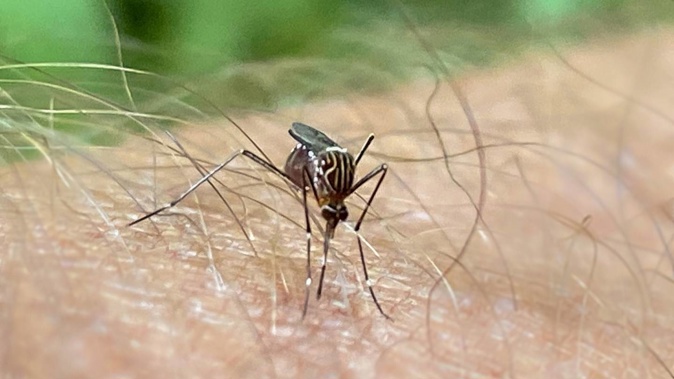
Hawke’s Bay has seen a rise in mosquitoes following Cyclone Gabrielle, including the aggressive biting species Culex pervigilans.
A rise in rodents could also be on the way during the coming months as a result of the floods, according to a pest control professional.
Pest Management Association of New Zealand (PMANZ) says there has been an increase in mosquitoes in Hawke’s Bay, which is common to see following flooding events.
“This is because mosquitoes breed in standing or still water, which the Hawke’s Bay region has plenty of after Cyclone Gabrielle,” a PMANZ statement read.
“Flooding can lead to massive mosquito numbers.
“Simply put, with more water, you get more mosquitoes, as the water provides habitat for the larval stage.”
Fortunately, New Zealand has far fewer species of mosquitoes than the likes of Australia, and does not have species which transmit severe diseases to humans (such as the Ross River virus, dengue, or the Zika virus).
However, mosquito bites cause irritation and can lead to secondary infections from scratching, and can also cause allergic reactions.
Mosquito numbers have risen in Hawke's Bay following the floods which hit the region. Pictured is Redcliffe Bridge near Taradale. Photo / Paul Taylor
- US may use genetically modified mosquitoes to fight Zika
- UOA's Dr Joel Rindelaub on an unlikely control for deadly mosquitoes
Culex species of mosquitoes are common in New Zealand and are among those on the rise in the region.
“The floodwaters can be very productive for Culex species such as Culex pervigilans, the widespread and aggressive biting mosquito in New Zealand,” the PMANZ statement read.
If you hear the whine of a mosquito buzzing around your house at night, it is most likely the Culex quinquefasciatis species, of which only the females bite.
Brent Foster, owner of AAA Services, a pest control company in Hawke’s Bay, said he had noticed more mosquitoes while out working on people’s properties.
“There are a few around, and there will be a few around after [the] flooding,” he said.
“The temperature is still quite warm, so the population will explode, but when the temperature drops - which should not be too far away - the population should diminish naturally.
“So, it is a temporary problem which I would imagine we might have for the next four or five weeks.”
He said rodents could become a problem in the region in months to come, with plenty of spoilage and decaying food and fruit for them to feed on.
“There might be a bit of an explosion. The conditions are ripe. Whether that eventuates, it’s hard to know.”
If you do feel unwell after being bitten by a mosquito, or have a severe allergic reaction, then seek medical assistance.
Five tips to avoid mosquitoes:
- Regularly clear your backyard of anything that creates pooling such as blocked gutters.
- Keep swimming pools well-chlorinated.
- Under trees, provide a heavy mulch to prevent water from pooling.
- Stagnant bodies of water can be treated with insecticides.
- Mosquitoes tend to be active at dawn and dusk - avoid these times outdoors.
Take your Radio, Podcasts and Music with you

/cloudfront-ap-southeast-2.images.arcpublishing.com/nzme/CMJFEPCU3FAK3GMOQWR5SX4HHM.JPG)








